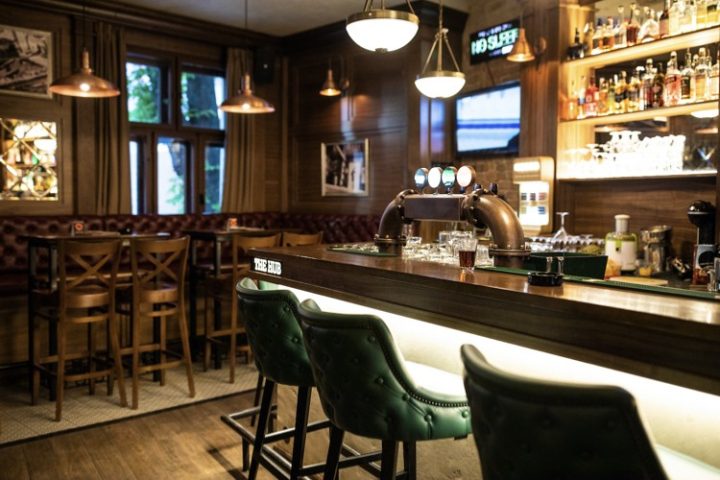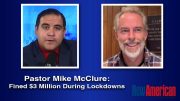
In yet another devastating blow to Pennsylvania restaurants and bars, the commonwealth’s secretary of health has announced that alcohol is barred from being sold from Wednesday evening until Thursday (Thanksgiving) morning, typically one of the busiest nights of the year for bars and restaurants.
The edict suspends the sale of alcohol from 5 p.m. on Wednesday, November 25, until 8 a.m. on Thursday, November 26 — Thanksgiving Day. Secretary of Health Dr. Rachel L. Levine claims the edict is intended to “slow the spread” of the coronavirus.
Pennsylvania Governor Tom Wolf even acknowledged that the Wednesday before Thanksgiving was the “biggest day for drinking” before adding that those gatherings lead “to an exchange in fluids which leads to an increase in infections.”
Bar owners are still reeling from Governor Wolf’s initial COVID-19 shutdown that forced the closure of bars on what is typically the busiest day of the year for most bar owners: St. Patrick’s Day.
“St. Patrick’s Day pays for the whole year,” said Gus Katsaros, manager at Yorgos in Lancaster. With alcohol sales prohibition in effect for Wednesday night, Katsaros notes his revenue will be all but eliminated. “We don’t understand why Gov. Wolf is coming at small businesses.”
Levine defends the unlawful order with more COVID propaganda. “It has to be our collective responsibility to protect our communities, our healthcare workers and our most vulnerable Pennsylvanians from COVID-19,” the secretary added.
The Wall Street Journal notes Levine’s latest measure deal a striking blow to an already devastated industry. “Small businesses have been at the losing end of the U.S. economy for decades, but nothing has diminished their stature like the Covid-19 crisis,” WSJ writes. “Thousands of small firms have been driven out of business while their larger counterparts have largely survived and, in some cases, even flourished.”
According to data obtained from software and business-services provider Womply, one in five businesses that were open in January are not currently transacting, and most of those may be closed permanently.
WSJ reports, “In a recent survey of 6,325 small-business owners conducted by small business social-networking company Alignable, 42% of respondents said they were at risk of going out of business in the fourth quarter.”
Pittsburgh’s William Penn Tavern owner Richard Rattner told KDKA said the latest edict is devastating. “You wake up Monday morning, you got something to look forward to finally as a bar and restaurant owner and the carpet gets pulled out right from underneath you,” Rattner said.
As the ban on alcohol sales applies only to bars and restaurants but not to state stores or beer sales from local breweries, North Country Brewing owner Bob McCafferty contends bar owners are being “attacked.”
House Republicans spokesman Jason Gottesman also criticized the orders that disproportionately harm bars and restaurants. “While Pennsylvanians prepare to go Black Friday shopping at big box retailers unrestricted by new orders from Gov. Wolf, bars and restaurants are going to be left to languish under more onerous limitations on their ability to do business during what should be a robust holiday season,” Gottesman said in written statement.
The suspension of alcohol sales the night before Thanksgiving is just the latest in a series of draconian measures announced in Pennsylvania this month.
Last week, Dr. Levine’s office issued an order that includes mask requirements for indoors and outdoors, even when Pennsylvanians are able to socially distance themselves six feet from one another.
The commonwealth’s latest order also makes telework mandatory “unless impossible,” severely reduces indoor capacity based on maximum occupancy, and discourages Thanksgiving gatherings of multiple households.
Pennsylvania has also imposed strict travel restrictions, Pittsburgh CBS Local reports. Under those restrictions, anyone who visits from another state is required to have a negative COVID-19 test within 72 hours of arriving. If testing is not an option, they are required to quarantine for two weeks. Pennsylvanians visiting other states are required to be tested within 72 hours of their return or quarantine for 14 days.
Fortunately, some sheriffs have already stated they will not be enforcing the mandates. “Our United States Constitution, and the Constitution of the Commonwealth of Pennsylvania, recognize individual freedom and liberties, and weigh heavily in favor of the rights of the individual citizen,” Lancaster County Sheriff Chris Leppler posted last week. “In recognition of this, our Office will stand in defense of the individual rights of all citizens. Our office will not be enforcing any edicts from the Governor’s Office as it relates to the Covid-19 pandemic. We are a government for the people, by the people.”
Likewise, district attorneys throughout the state declared they will not prosecute mask mandate violators.
Berks County District Attorney John Adams sent a statement to local law enforcement last month saying that it was not a criminal act to not wear a mask and such violations will not be prosecuted.




